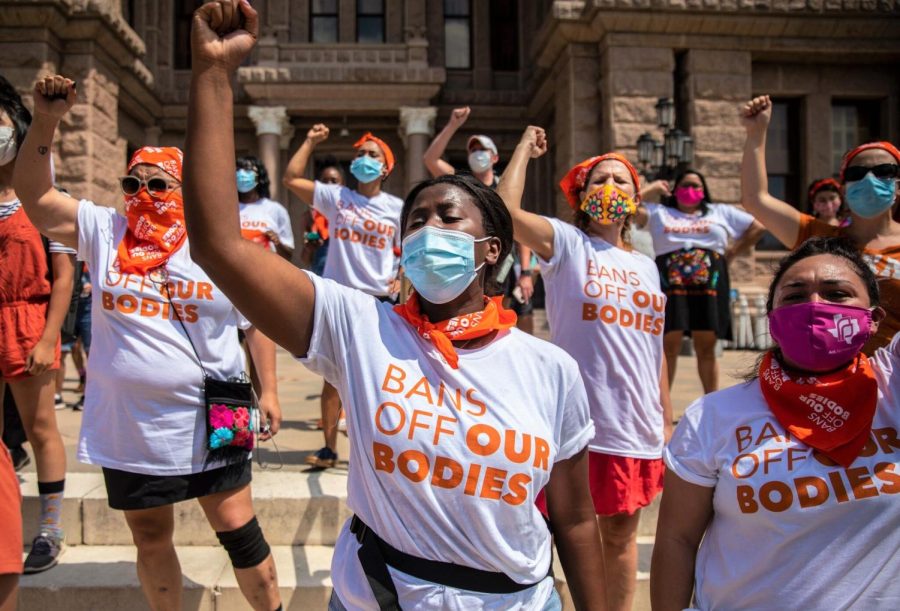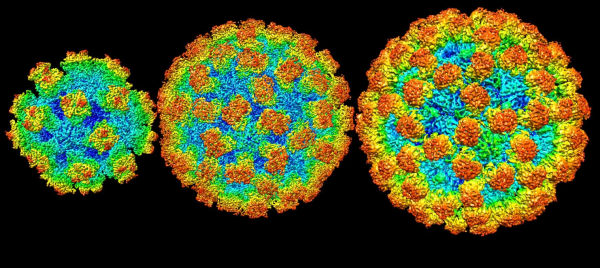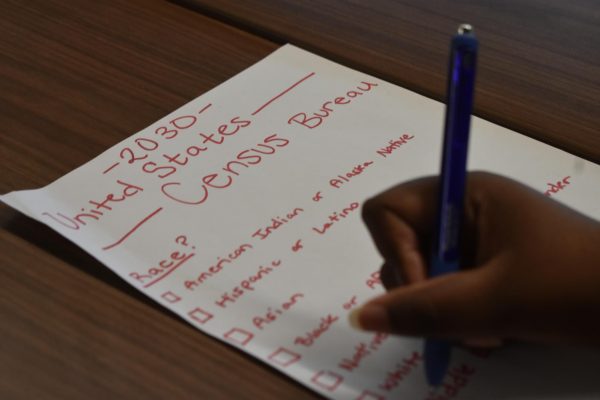The new Texas heartbeat bill
The Women’s March, a group that defends reproductive rights, convened a nationwide mass mobilization to protest Texas’ controversial new abortion law. The widespread rage caused the group, and over 90 other organizations, to organize this national call and hold marches in almost every state. Pro-choice advocates can join, find or host a march on their page and donate to the cause.
October 8, 2021
After the Supreme Court released its ruling on Texas’s new ban, deeming the majority of abortions illegal, abortion rights advocates find a new daunting challenge. On May 19, Governor Greg Abbott signed into law the Texas Heartbeat Act and on September 1 it went into effect.
This bill overturned the 1973 Roe vs Wade court ruling, a landmark decision that protects a pregnant woman’s liberty to choose to receive an abortion without a great deal of government restriction. The new act bans abortions after six weeks, one of the stricter abortion laws in the United States but not unheard of.
The bill also gives power to private citizens, which sets it apart from other abortion laws. Instead of the government enforcing the Bill, private individuals who support it may sue abortion providers or anyone who aided in obtaining an abortion after a fetal “heartbeat” forms. Yet, medical experts claim that the reference to a heartbeat at that stage of a pregnancy proves medically inaccurate, as an embryo does not contain a fully developed heart at six weeks gestation. The lack of law enforcement implementing the bill benefits the government because it helps prevent numerous legal challenges. Abortion providers can not sue the state because no state official plays a role in enforcing the law. This provision restricted the affected women, so that they may not tell friends or family about their situation for fear of facing legal repercussions. Additionally, rape crisis counselors can face issues if they assist a patient in obtaining an abortion, regardless of their intentions.
“Although SB 8 [Senate Bill 8] purports not to punish abortion patients themselves, they are its true targets. It is designed to silence and paralyze a patient’s entire support network, leaving them isolated, afraid, and alone,” writer for Slate Magazine Mark Joseph Stern, said.
Numerous states, specifically those in the Bible Belt of the United States, such as Georgia and Alabama, passed similar laws within recent years, but none successfully put the Bill into effect due to Supreme Court intervention. Texas’ unique Bill proves challenging for abortion rights advocates who wish to fight against it but also supreme courts. As a result, the affected women accepted the challenge and began to riot against the ruling. Despite the abundance of backlash, the Texas government still stands proud behind the new bill.
“Our creator endowed us with the right to life and yet millions of children lose their right to life every year because of abortion. [The legislature] worked together on a bipartisan basis to pass a bill that I’m about to sign that ensures that the life of every unborn child who has a heartbeat will be saved from the ravages of abortion,” Abbott said.
While the state officials that proposed this bill focus exclusively on the health of the unborn child. Citizens who advocate against it fear the hardships it will bring. The unwavering provisions do not take exception for cases of rape, incest, or high-risk pregnancies.
“Many victims are simply in denial that they are pregnant in the first place: a full third of the pregnancies resulting from rape are not discovered until the second trimester. Any delay in detection reduces women’s options, especially outside major urban centers, but many women struggle with the speed of the decision; they are still recovering from being raped when they are called on to make up their minds about abortion,” Andrew Soloman, a writer for The New Yorker, said.
Within days of executing the act, complications presented themselves. Alan Braid, a Texas doctor, performed an abortion for a woman on September 6th. The woman, while still in her first trimester, fell past the six-week mark. The doctor claims he acted out of duty (by means of philanthropy) but the procedure will likely trigger harsh legal proceedings.
“When you factor in the time it takes to confirm a pregnancy, consider your options and make a decision, schedule an appointment and comply with all the restrictions politicians have already put in place for patients and providers, a six-week ban essentially bans abortion outright,” Dyana Limon-Mercado, executive director of Planned Parenthood Texas Votes, said.
Since the law took effect, protests spread rapidly across the country. On October 2, thousands of women stormed the capitol in three different marches, all aiming to tackle separate elements of abortion laws. A subset of the larger group, Bans off our Bodies, hastily formed just before the march in an attempt to gain more clusivity. Pro-life and anti-abortion protestors shouted their disagreements, but the event stayed civil apart from thrusting their signs in the faces of others.
“This year alone we have seen nearly 600 restrictions in 47 states, so no matter where you live, no matter where you are, this fight is at your doorstep,” Alexis McGill Johnson, president of Planned Parenthood, said.



















